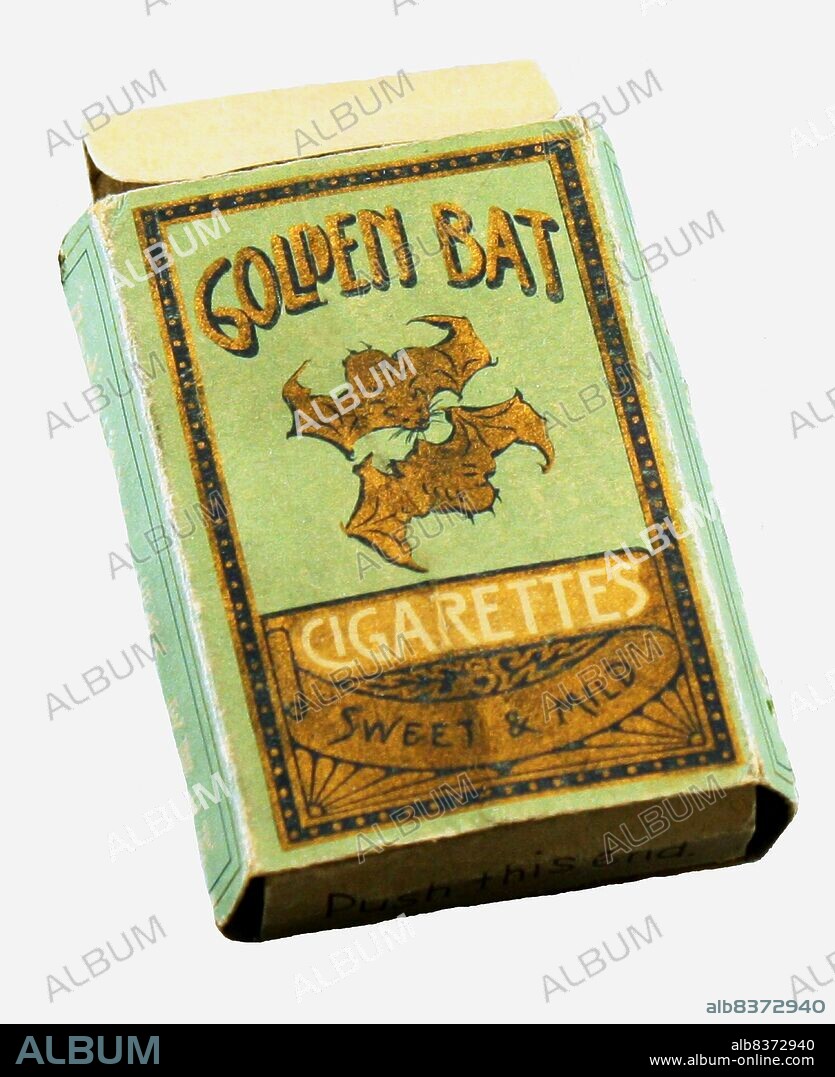alb8372940
Japan / China / Korea: Mitsui Company manufactured 'Golden Bat' cigarette packet from the 1930s

|
Añadir a otro lightbox |
|
Añadir a otro lightbox |



¿Ya tienes cuenta? Iniciar sesión
¿No tienes cuenta? Regístrate
Compra esta imagen.
Selecciona el uso:

Título:
Japan / China / Korea: Mitsui Company manufactured 'Golden Bat' cigarette packet from the 1930s
Descripción:
Ver traducción automática
As part of the plans for the exploitation of China, during the thirties and forties the subsidiary tobacco industry of the Mitsui Company started production of special 'Golden Bat' cigarettes using the then popular in the Far East trademark. Their circulation was prohibited in Japan and was used only for export.
. Local Japanese secret service under the controversial General Kenji Doihara had the control of their distribution in China and Manchuria where the production exported. In their mouthpiece there were hidden small doses of opium or heroin and by this millions of unsuspecting consumers were addicted to these narcotics, while creating huge profits.
. The mastermind of the plan, the General of the Imperial Japanese Army Kenji Doihara was later prosecuted and convicted for war crimes before the International Military Tribunal for the Far East, before being sentenced to death. Yet no actions ever took place against the company which profited from their production. According to testimony presented at the Tokyo War Crimes trials in 1948, the revenue from the narcotization policy in China, including Manchukuo, was estimated at twenty to thirty million yen per year, while another authority states that the annual revenue was estimated by the Japanese military at 300 million dollars a year.
. Local Japanese secret service under the controversial General Kenji Doihara had the control of their distribution in China and Manchuria where the production exported. In their mouthpiece there were hidden small doses of opium or heroin and by this millions of unsuspecting consumers were addicted to these narcotics, while creating huge profits.
. The mastermind of the plan, the General of the Imperial Japanese Army Kenji Doihara was later prosecuted and convicted for war crimes before the International Military Tribunal for the Far East, before being sentenced to death. Yet no actions ever took place against the company which profited from their production. According to testimony presented at the Tokyo War Crimes trials in 1948, the revenue from the narcotization policy in China, including Manchukuo, was estimated at twenty to thirty million yen per year, while another authority states that the annual revenue was estimated by the Japanese military at 300 million dollars a year.
Crédito:
Album / Universal Images Group / Pictures From History
Autorizaciones:
Tamaño imagen:
3800 x 4658 px | 50.6 MB
Tamaño impresión:
32.2 x 39.4 cm | 12.7 x 15.5 in (300 dpi)
Palabras clave:
1930 • ADICCION • ART • ARTE • ARTES • ASIA • ASIATICO • CHINA • CHINO • CIGARRILLO • CIGARRO • COLONIALISMO • COREA • COREANO • DEPENDENCIA • DROGA • FASCISMO • FASCISTA • IMPERIALISMO • JAPON • JAPONES • MILITARISMO • NARCOTICO • OPIÁCEO • OPIO • PUBLICIDAD • TABACO
 Pinterest
Pinterest Twitter
Twitter Facebook
Facebook Copiar enlace
Copiar enlace Email
Email
